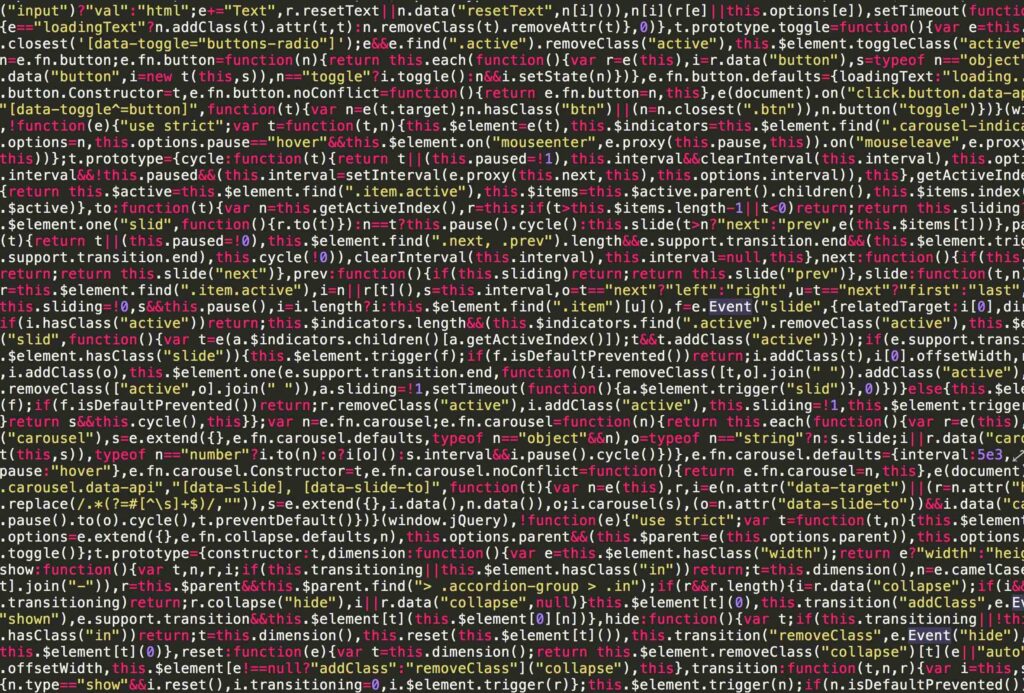Table of Contents
- What Is Computer Programming?
- What Is Computer Science?
- Computer Programming vs. Computer Science: Similarities
- Computer Programming vs. Computer Science: Education
- Computer Programming vs. Computer Science: Career Paths
- Computer Programming vs. Computer Science: Skills
- Computer Programming vs. Computer Science: Salary and Job Outlook
- Wrapping Up
In today’s digital age, computer programming and computer science fields have become increasingly vital and influential. Both disciplines play integral roles in shaping the technological advancements that permeate our lives. While computer programming and computer science may seem synonymous at first glance, they are distinct areas of study with unique focuses and objectives.
In this exploration, we will delve into the key differences between computer programming and computer science, shedding light on their respective domains, skill sets, and the diverse paths they offer for those passionate about the world of technology. By understanding the contrasting nature of these disciplines, we can gain clarity on which path aligns best with our interests and aspirations, ultimately paving the way toward a successful and fulfilling career in the tech industry.
What Is Computer Programming?
Computer programming is a fundamental aspect of software development, encompassing the art of instructing computers to perform specific tasks by creating and implementing algorithms. It is the writing, testing, and maintenance of a set of instructions or code that enables a computer to execute desired functionalities and solve problems. Programming languages, such as Python, Java, and C++, serve as the medium through which programmers communicate with computers, expressing their intentions and logic in a structured and precise manner.
Skilled programmers possess a deep understanding of programming concepts, syntax, and algorithms, enabling them to design efficient and robust solutions for various computational challenges. From developing web applications and mobile apps to designing complex software systems, computer programming empowers individuals to transform ideas into tangible, functional software products that shape our digital landscape.
What Is Computer Science?
Computer science is a multifaceted discipline encompassing computational systems, algorithms, and the theoretical foundations of computing. It explores the principles and concepts underlying computer software and hardware design, analysis, and implementation. Computer science goes beyond mere programming and delves into a broader understanding of the computational world, covering data structures, algorithms, artificial intelligence, computer architecture, database systems, and more. It focuses on solving complex problems, improving efficiency, and advancing technology through innovation and research.
Computer scientists investigate fundamental questions about computation, explore new methodologies, and develop theoretical models to tackle real-world challenges. By bridging theory and practice, computer science drives innovation, shaping the development of cutting-edge technologies and paving the way for revolutionary advancements in fields such as robotics, machine learning, and cybersecurity.
Computer Programming vs. Computer Science: Similarities
While computer programming and computer science are distinct disciplines, they also share several commonalities contributing to their interconnectedness. Both fields revolve around computing and require a strong foundation in logical thinking and problem-solving skills. They involve working with computers and technology, albeit in different capacities.
Additionally, computer programmers and computer scientists need to have a solid understanding of programming languages and the ability to code. They also rely on computational thinking, which involves breaking down complex problems into smaller, more manageable components and devising algorithmic solutions. Furthermore, both disciplines benefit from collaboration and interdisciplinary approaches, as programmers and computer scientists often work together to develop innovative solutions and bring ideas to fruition.
Despite their distinctions, these shared aspects create a symbiotic relationship with computer programming as a practical application of computer science principles.
Computer Programming vs. Computer Science: Education
Regarding education, computer programming and computer science follow distinct paths that cater to their specific focuses. Computer programming education often involves vocational programs, coding boot camps, or short-term courses that provide practical training in specific programming languages and frameworks. These programs prioritize acquiring industry-relevant skills for immediate entry into the workforce.
On the other hand, computer science education takes a more comprehensive approach, typically offered through academic degrees such as bachelor’s or master’s programs. It covers a broader range of theoretical concepts, algorithms, data structures, and computer architecture. Computer science programs often include mathematics and theory-based coursework to cultivate a deep understanding of computational principles.
Both paths offer valuable education, allowing individuals to choose the level of theoretical knowledge and practical skills that align with their career goals in the technology industry.
Computer Programming vs. Computer Science: Career Paths
Computer programming career paths:
- Software engineer
- Application developer
- Web developer
- Mobile app developer
- Game developer
- Systems analyst
Computer science career paths:
- Research scientist
- Data scientist
- Machine learning engineer
- Artificial intelligence specialist
- Cybersecurity analyst
- Professor or academic researcher
While computer programming primarily focuses on coding and software development, computer science offers a broader range of career paths, including research, academia, and specialized fields such as data science and artificial intelligence. Programmers often work in development teams, creating software solutions for various domains. On the other hand, computer scientists engage in cutting-edge research and innovation, pushing the boundaries of technology. Both fields provide abundant opportunities for professionals to significantly impact the rapidly advancing tech industry.
Computer Programming vs. Computer Science: Skills
Computer programming skills:
✅ Request information on BAU's programs TODAY!
- Proficiency in programming languages (e.g., Python, Java, C++)
- Problem-solving and logical thinking
- Attention to detail for debugging and troubleshooting
- Collaboration and communication skills
- Knowledge of software development methodologies and frameworks
Computer science skills:
- Strong mathematical foundations (e.g., discrete mathematics, calculus, linear algebra)
- Proficiency in algorithms and data structures
- Analytical and research skills
- Understanding of complexity theory
- Knowledge of specialized areas like machine learning, data analysis, and computer architecture
- Ability to conduct experiments and analyze results
While computer programming and computer science require programming skills, computer science emphasizes theoretical knowledge, mathematics, and research capabilities. Computer programmers excel in practical coding and problem-solving, while computer scientists possess a deeper understanding of computational theory and often engage in cutting-edge research and innovation. Developing a well-rounded skill set that aligns with the chosen career path is crucial for success in either field.
Computer Programming vs. Computer Science: Salary and Job Outlook
Computer programming and computer science offer promising salary prospects and job outlooks within the thriving tech industry. While both fields present favorable opportunities, computer science professionals generally command higher salaries due to their specialized knowledge and expertise. Roles in research, development, and innovation within artificial intelligence and data science fields can lead to lucrative positions.
Computer programming professionals also enjoy competitive salaries, with earning potential influenced by experience, skill level, and specialization. The demand for skilled programmers remains steady, particularly in software development and related domains. However, according to the U.S. Bureau of Labor Statistics (BLS), the employment for computer programmers in the US might decline from 2021 to 2031. This is due to companies outsourcing computer programmers from countries that pay lower salaries. On the other hand, computer science professionals have diverse career prospects, with growing opportunities in areas like data science, artificial intelligence, and machine learning.
Both fields offer attractive salary prospects and positive job outlooks, making them appealing options for individuals interested in technology careers.
Wrapping Up
In conclusion, computer programming and computer science are two distinct but closely related disciplines that play integral roles in the ever-evolving world of technology. While computer programming centers on the practical aspect of coding and software development, computer science delves into the theoretical foundations, research, and innovation of computing.
Understanding the differences allows individuals to make informed decisions about their educational paths and career aspirations. Whether one chooses to become a skilled programmer or dive into the depths of computer science, both fields offer exciting opportunities to contribute to technological advancements and shape the future of the digital landscape.
Ultimately, the choice between computer programming and computer science depends on individual interests, strengths, and desired impact within the dynamic field of technology.












